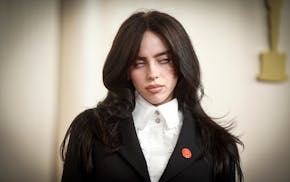Readers who have encountered Lindsay Hunter's short fiction will have a sense of the familiar when reading "Ugly Girls," her first novel. There's bad behavior, teenage rebellion, heavy drinking and moments of bleak humor — all hallmarks of her first two books, the collections "Daddy's" and "Don't Kiss Me."
Until now, Hunter's fiction has come fast and concentrated, a rapid-fire distillation of flawed characters and relationships transmitted via pitch-perfect prose. "Ugly Girls" finds Hunter preserving those strengths even as she applies them to a larger scale; the result is a bleak borderline noir that recalls work by Harry Crews and Charles Willeford.
At the center of this novel are two teenage girls, Baby Girl and Perry, who engage in antisocial acts from leaving tips at Denny's embedded in chewed gum to stealing cars for joy rides. Baby Girl is consumed with guilt and anger after an accident left her once-charismatic older brother with cognitive impairments, vacillating. Perry lives with her alcoholic mother, Myra, and stepfather Jim, a prison guard. At work, he speaks with a man imprisoned for molesting a child; when the man asks about Perry, Jim attacks him. "He'd make sure the man saw a doctor, it's what separated him from some of the other guards, and he didn't often hit the other prisoners," Hunter writes.
This is the sort of novel where Jim, flawed as he is, is the closest thing the book has to a moral center. Which is to say: Things get bad.
Specifically, that happens via a neighbor of Perry's named Jamey, a sad and dangerous man who lives in an uncomfortably codependent relationship with his morbidly obese mother. He spends time stalking Perry and Baby Girl on social networks — although Hunter is more interested in what might happen when a number of volatile characters converge. Perry and Baby Girl are quickly able to surmise that Jamey isn't the most pleasant of characters; how they react to his advances is the hinge on which this novel turns.
Perry and Baby Girl are compelling characters in their own right, but the novel's supporting characters also shine: Myra, in her pride in seeing aspects of herself in Perry; Jim, in his flawed belief in his relative goodness; even Jamey, who has a sudden, wrenching, late-novel epiphany about aging. Hunter also ably shows how characters can look different from within their own heads and through the eyes of others. The landscape of "Ugly Girls" is a bleak one, but Hunter's work allows for moments of grace and insight to shine through.
Tobias Carroll is the managing editor of Vol. 1 Brooklyn.

Minneapolis couple double down on Uptown with condo renovation with 'relaxing' feel
Jerry Seinfeld's commitment to the bit
Surging auto insurance rates squeeze drivers, fuel inflation
